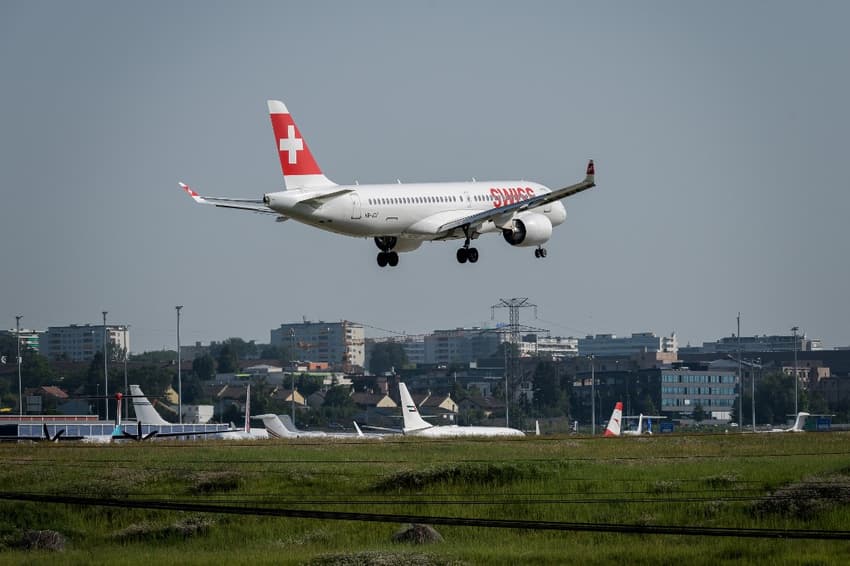Swiss authorities consider implementing stricter quarantine control measures

New measures may be taken to monitor the compliance with the 10-day quarantine by travellers coming to Switzerland from high-risk nations.
The Federal Council announced that from July 6th, anyone entering Switzerland from one of countries considered to be at risk due to the high number of Covid-19 cases, must go straight to their own house or another suitable accommodation and stay there continuously for 10 days.
The countries concerned by the measure are Argentina, Armenia, Azerbaijan, Bahrain, Belarus, Bolivia, Brazil, Cabo Verde, Chile, Dominican Republic, Honduras, Iraq, Israel, Qatar, Colombia, Kosovo, Kuwait, Moldova, North Macedonia, Oman, Panama, Peru, Russia, Saudi Arabia, Sweden, Serbia, South Africa, Turks and Caicos Islands, and the United States.
The travellers must report to the cantonal health authorities within two days of their arrival. Not complying with the quarantine could result in a fine of up to 10,000 francs.
The reporting and the quarantine was to be based on each traveller’s sense of ndividual and social responsibility, with only occasional phone checks done by the authorities.
READ MORE: Q&A: What travellers to Switzerland should know about the new 10-day quarantine rule
However, the authorities discovered that certain members of Switzerland’s international community formed groups on social media discussing ways to beat the system.
Specifically, they were looking for ways to circumvent direct travel from an at-risk country by entering Switzerland through a Schengen state, so that no quarantine would be required.
In response, the Federal Office of Public Health (FOPH) announced that to prevent cheating, the government is considering requesting passenger lists for flights arriving from risky areas.
So far, this has only been done retroactively if a passenger has tested positive.
Coach operators might also have to provide the names and nationalities of passengers.
Unannounced random checks would then be carried out, according to Stefan Kuster, the head of the Communicable Diseases department of the Federal Office of Public Health (FOPH).
Swiss media reported that many residents may want to skip on the quarantine because employers will not pay the time taken off if the employee travelled to a zone at risk for personal reasons or a holiday.
However, those who were sent abroad for professional reasons will be paid for the 10 days of quarantine.
Another exception would be healthcare workers who return from high-risk countries but could called into work the very next day.
Comments
See Also
The Federal Council announced that from July 6th, anyone entering Switzerland from one of countries considered to be at risk due to the high number of Covid-19 cases, must go straight to their own house or another suitable accommodation and stay there continuously for 10 days.
The countries concerned by the measure are Argentina, Armenia, Azerbaijan, Bahrain, Belarus, Bolivia, Brazil, Cabo Verde, Chile, Dominican Republic, Honduras, Iraq, Israel, Qatar, Colombia, Kosovo, Kuwait, Moldova, North Macedonia, Oman, Panama, Peru, Russia, Saudi Arabia, Sweden, Serbia, South Africa, Turks and Caicos Islands, and the United States.
The travellers must report to the cantonal health authorities within two days of their arrival. Not complying with the quarantine could result in a fine of up to 10,000 francs.
The reporting and the quarantine was to be based on each traveller’s sense of ndividual and social responsibility, with only occasional phone checks done by the authorities.
READ MORE: Q&A: What travellers to Switzerland should know about the new 10-day quarantine rule
However, the authorities discovered that certain members of Switzerland’s international community formed groups on social media discussing ways to beat the system.
Specifically, they were looking for ways to circumvent direct travel from an at-risk country by entering Switzerland through a Schengen state, so that no quarantine would be required.
In response, the Federal Office of Public Health (FOPH) announced that to prevent cheating, the government is considering requesting passenger lists for flights arriving from risky areas.
So far, this has only been done retroactively if a passenger has tested positive.
Coach operators might also have to provide the names and nationalities of passengers.
Unannounced random checks would then be carried out, according to Stefan Kuster, the head of the Communicable Diseases department of the Federal Office of Public Health (FOPH).
Swiss media reported that many residents may want to skip on the quarantine because employers will not pay the time taken off if the employee travelled to a zone at risk for personal reasons or a holiday.
However, those who were sent abroad for professional reasons will be paid for the 10 days of quarantine.
Another exception would be healthcare workers who return from high-risk countries but could called into work the very next day.
Join the conversation in our comments section below. Share your own views and experience and if you have a question or suggestion for our journalists then email us at [email protected].
Please keep comments civil, constructive and on topic – and make sure to read our terms of use before getting involved.
Please log in here to leave a comment.